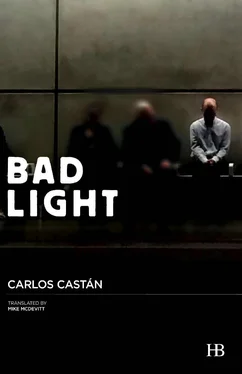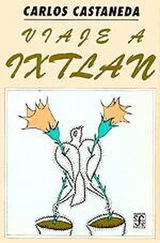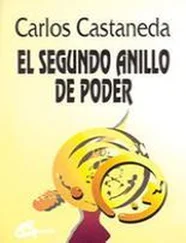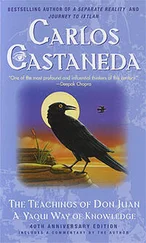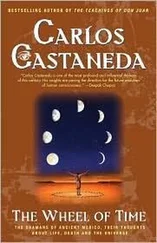Carlos Castán - Bad Light
Здесь есть возможность читать онлайн «Carlos Castán - Bad Light» весь текст электронной книги совершенно бесплатно (целиком полную версию без сокращений). В некоторых случаях можно слушать аудио, скачать через торрент в формате fb2 и присутствует краткое содержание. Год выпуска: 2016, Издательство: Hispabooks, Жанр: Современная проза, на английском языке. Описание произведения, (предисловие) а так же отзывы посетителей доступны на портале библиотеки ЛибКат.
- Название:Bad Light
- Автор:
- Издательство:Hispabooks
- Жанр:
- Год:2016
- ISBN:нет данных
- Рейтинг книги:5 / 5. Голосов: 1
-
Избранное:Добавить в избранное
- Отзывы:
-
Ваша оценка:
- 100
- 1
- 2
- 3
- 4
- 5
Bad Light: краткое содержание, описание и аннотация
Предлагаем к чтению аннотацию, описание, краткое содержание или предисловие (зависит от того, что написал сам автор книги «Bad Light»). Если вы не нашли необходимую информацию о книге — напишите в комментариях, мы постараемся отыскать её.
Carlos Castán
Bad Light
Bad Light — читать онлайн бесплатно полную книгу (весь текст) целиком
Ниже представлен текст книги, разбитый по страницам. Система сохранения места последней прочитанной страницы, позволяет с удобством читать онлайн бесплатно книгу «Bad Light», без необходимости каждый раз заново искать на чём Вы остановились. Поставьте закладку, и сможете в любой момент перейти на страницу, на которой закончили чтение.
Интервал:
Закладка:
I preferred to say nothing and to leave them there, cheerful in that crestfallen huddle, now all set to broach the time-honored chapter — which could well take the name “But How In God’s Name Did We Fail To Notice”—in which their remarks had already moved on to the subject of how guilty each of them felt deep down, for perhaps they should never have allowed him to take off alone to Zaragoza under such circumstances, as despondent as he seemed, drinking more than ever (they lowered their voices at this point), his nerves shot to pieces, at war with the world. As if their opinions had ever counted for anything, as if there were ever the remotest possibility that Jacobo might at any stage have paid them the slightest heed. They say that, by all accounts, it was dreadful. They say that the whole house was filled with blood, that it must’ve been one of those gangs. They say he was a regular at the strip clubs, that he rubbed shoulders with underworld types, that he had racked up debts in almost every store on his street. They say that there’s some bleached-blond Russian girl who’s young enough to be his daughter. They say that that friend of his who came here with him did him no favors; we all know his sort, a dismal character if ever there was one, a regular ray of sunshine. They say that aside from the blood and all that, his apartment was a shithole — dust everywhere, the dirty dishes untouched, that goes without saying, the bucket where he put his dirty laundry filled to the brim and overflowing, smelling like a pirate’s lair. Filth and rum. They say that he lived like an animal, the poor guy, that that’s no way to live, although by all accounts he had his moments and he clearly sometimes realized the error of his ways, for he’d call people up in the early hours of morning, even his in-laws once in a while, only to fall silent, all you could hear was his heavy breathing on the other end of the line, before hanging up all of a sudden, without even bothering to pick up if his call was returned. They say that pride is a very bad thing, that no good can come of all that pride, that it was in fact that pride, more than anything else, that was his undoing, They say he took his medicine however he damn well pleased. They say all of that. They say he didn’t even own an iron.
9 (alone on stage)
I’m not quite sure why I went to Jacobo’s apartment or what I was looking for when I began to search his shelves and open all of the drawers, one by one. I pulled the door firmly shut behind me, donned his slippers, brewed some coffee, and got ready to stay there all afternoon long, taking my time, in the very place we had so often stayed up till dawn, discussing this, that, and the other. On my last visit, we had gotten bogged down in a conversation about the meaninglessness of it all, and he had asked me to change the subject, when, apropos of nothing in particular, we began riffing on the idea of the black infinity in which our planet floats, like a rudderless ship sailing on an ocean of anguish. He preferred more earthbound subjects and had lately been harking back to the past more than was usual in him, recounting the odd episode from his rural childhood — part picaresque, part nostalgia, and part horror — and his years spent at a Salesian boarding school, and his first brushes with love, which arrived without prior warning with all that hitherto unknown trembling, the first panic attack, an aching as incomprehensible as it was real, your skin torn off in strips by the love that has just savaged you minutes after the girl of your dreams first appeared on the scene like a carnivorous plant. The trap sprung by the pink dress, the ribbon in the hair, the gentleness that, when you least expect it, leaves your heart fraying at the edges and bearing tooth marks. Desire like a whiplash, the prie-dieu in the darkest corner of the chapel. The knees red and raw from all that kneeling and praying. The knees red and raw also from all those falls, from the thorny bushes on the flatland that looked from afar like a garden. We were discussing all this, somewhat in the abstract and without getting down to the specifics, the girls who plucked us from our childhoods without the slightest compassion, and the fear that hovered in the air, though always left unspoken, when the time came to take her hand in yours under an almond tree in bloom, and all that innocence that cuts through you like a rusty sword, the pale hands that daintily place in your chest, forevermore, a sorrow that is there to stay.
There was the battered leather armchair in which he liked to lounge and read and from which, just four days previously, he had held forth on Proust, waving airily with his glasses in one hand, and the yellow- and orange-hued checked blanket with which he covered his knees, and, on the side table, next to the ashtray still containing a fair few butts of his that no one had so far taken the trouble to empty, the pile of books he had been reading at the time: the two volumes published by Trotta of the complete works of Celan, The Anatomy of Melancholy by Robert Burton, the copy of Márai’s Diaries that I had just returned to him and which had not yet been put back in its place, L’espèce humaine by Robert Antelme, and a few notebooks containing his observations, sketches, and all manner of scribblings. He liked the two of us to read the same books more or less at the same time, for then he had someone with whom to discuss passages and exchange points of view.
Not long before, in that same room, he had been shocked by my theory that the difference between Auschwitz and military service of the sort that I did in Spain in the early eighties was merely quantitative and not qualitative. Immense, granted. Colossal, vast, there’s no arguing with that, but merely quantitative all the same. That was my headstrong stance. Auschwitz was military service multiplied by a certain number, pick one as high as you like, but not a drastically different matter. I remember telling him that when humans who sleep en masse in barracks begin to move at the sound of a whistle, you’re already halfway there. If I, at an intimate, almost physical level, can understand the testimonies of those who survived, even feeling an occasional, vague sense of déjà vu on reading the books of Antelme or Primo Levi, this is because I have on many a winter morning fallen into line in my underwear in front of the barracks and have mopped the floor of an immense building in which the bunk beds, the lice, and the boogers all blended into one. And because my head was all but shaven clean the minute I arrived, and because orders were barked at me to stand in the line for vaccinations and to stand in the line for the standard-issue attire and to stand in the line to have my bowl filled with soup and stewed meat, while all around me were watchtowers and spotlights trained on the tops of walls crowned with barbed wire and shards of jagged glass. Needless to say, I was not claiming that having lived through all of that automatically entitled me to put myself in the concentration camp prisoners’ shoes, but it did at least give me a firmer grasp on what they were talking about than could be said of someone who has never been ordered to place their thoughts and speech on hold, or paraded back and forth all morning long, or cleaned sardines and scrubbed toilets for hours on end. Without that experience of having been stripped of my dignity, I would have no way of knowing what it feels like to be on your knees in the mud, or to have your face trampled by a boot. Now, however, when I read those tales of the camps, I can picture the backdrop to all that ignominy, the guard’s faces, the smell of muck and dirty laundry, and the depths of the envy you can feel toward any old dog of the sort that come to feed off the scraps from the trash cans left outside the back door to the kitchen.
Читать дальшеИнтервал:
Закладка:
Похожие книги на «Bad Light»
Представляем Вашему вниманию похожие книги на «Bad Light» списком для выбора. Мы отобрали схожую по названию и смыслу литературу в надежде предоставить читателям больше вариантов отыскать новые, интересные, ещё непрочитанные произведения.
Обсуждение, отзывы о книге «Bad Light» и просто собственные мнения читателей. Оставьте ваши комментарии, напишите, что Вы думаете о произведении, его смысле или главных героях. Укажите что конкретно понравилось, а что нет, и почему Вы так считаете.
